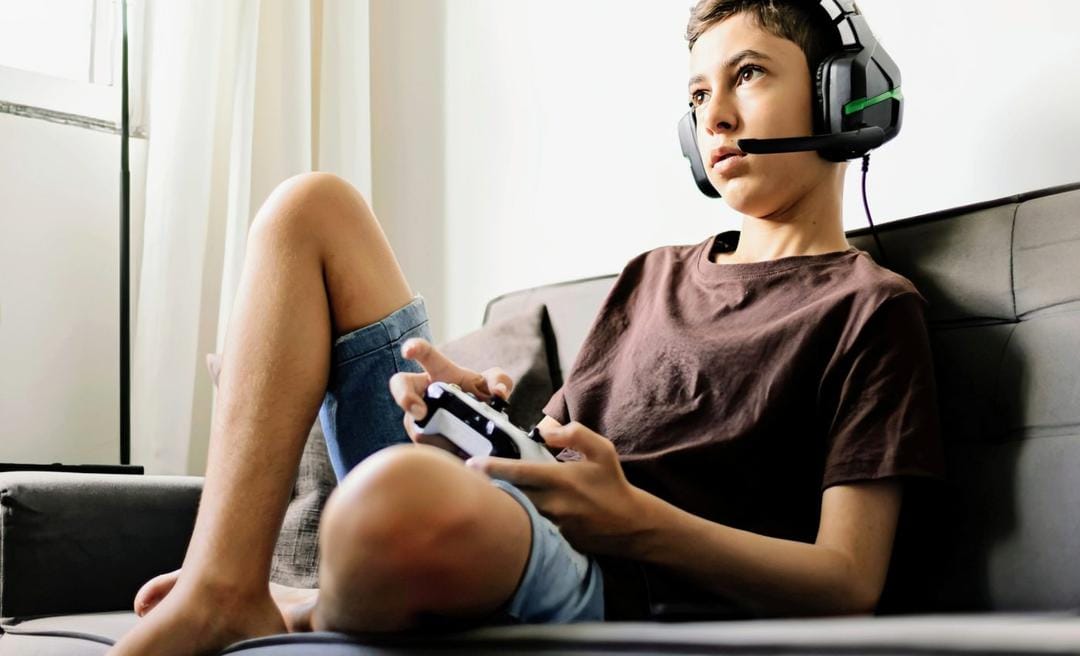With the average preteen spending more than five hours a day on screen time for non-educational purposes, the impact on their mental health is a growing concern. A recent study has confirmed a potential correlation between increased screen time and symptoms of depression and anxiety among adolescents.
Screen Time and Depressive Symptoms
The research, carried out by researchers at UC San Francisco, is one of the first long-term studies to investigate this worrying trend. The study followed a diverse selection of 9- and 10-year-olds from across the United States over a span of two years.
The results revealed a close tie between screen time and a myriad of symptoms, including more severe depression, aggression, hyperactivity, and inattention. There was a clear link between engaging in screen activities—such as video chatting, texting, watching videos, and gaming—and developing depressive symptoms.
The researchers noted that the symptoms of depression differed in severity depending on the type of screen activity. Study lead author Dr. Jason Nagata pointed out that screen usage might be replacing essential activities too often. “Screen use may replace time spent engaging in physical activity, sleep, socializing in-person, and other behaviors that reduce depression and anxiety,” explained Dr. Nagata.
Diverse Effects by Race, but Not Gender
Interestingly, the study noted racial disparities in how excessive screen time affected adolescents, revealing nuances that extend beyond general findings. The ties between increased screen time and symptoms of depression, hyperactivity, and opposition were notably stronger in white adolescents than in their Black or Asian peers. This finding suggests that cultural or environmental factors may influence how screen exposure impacts mental health. However, these effects were in no way influenced by the gender of the participant, indicating that screen time’s mental health effects may transcend gender differences.
Role of Social Media Varies by Background
A diverse group of study participants allowed for a more comprehensive understanding of how screen time might impact different racial groups—each with unique social dynamics and stressors. According to Dr. Nagata, the results suggest that screens and social media can play various roles based on racial background. “For minority adolescents, screens and social media may play a different role, serving as important platforms to connect with peers who share similar backgrounds and experiences,” said Dr. Nagata. “Rather than displacing in-person relationships, technology may help them expand their support networks beyond what’s accessible in their immediate environment.”
Mental Health Risks of Screen Time
Our increased concern about the mental health of adolescents is not unfounded. As screen time has surged, the likelihood of adolescents experiencing major depressive episodes and suicide has also seen an alarming rise. It’s important to note that parents are not powerless against these effects. Engaging with tools such as the American Academy of Pediatrics’ Family Media Use Plan, which considers the unique needs of each child, can help parents limit the negative effects of excessive screen time.
The study urges us to reassess the impact that screens are having on our younger generations.
Managing Screen Time as a Family
Dealing with screens in our daily lives can be tough for families, especially since they have become part of almost everything we do. However, even small changes can have a big impact. Experts recommend setting up screen-free zones or times, like during meals or right before bed, to encourage healthier habits.
Talking openly about screen use can help preteens make better choices. Parents can set an example by showing that there’s more to life than just screens. Instead, families can fill that time with outdoor activities, hobbies, or board games to build stronger bonds.
By making screen time a shared responsibility and a regular topic of conversation, families can find a balance that works for everyone. This type of team effort not only reduces the risks of excessive screen time but also teaches important life skills, like moderation and valuing real-world connections.

















+ There are no comments
Add yours